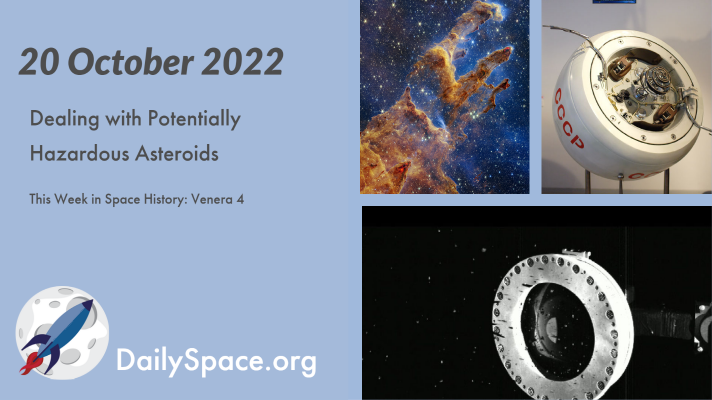
Oct 21, 2022 | Asteroids, Astrobiology, Curiosity, Daily Space, ESA, Galaxies, JAXA, JWST, Mars, OSIRIS-REx, Space History, Star Forming Region, Venus
A trio of asteroid-related stories crossed our emails this week: Bennu’s sample is on schedule for next year’s return, researchers have developed a tool to measure an asteroid’s density distribution, and 3200 Phaeton’s rotational period has accelerated. Plus, JWST’s new Pillars of Creation image, and this week in space history, we look back at Venera 4.
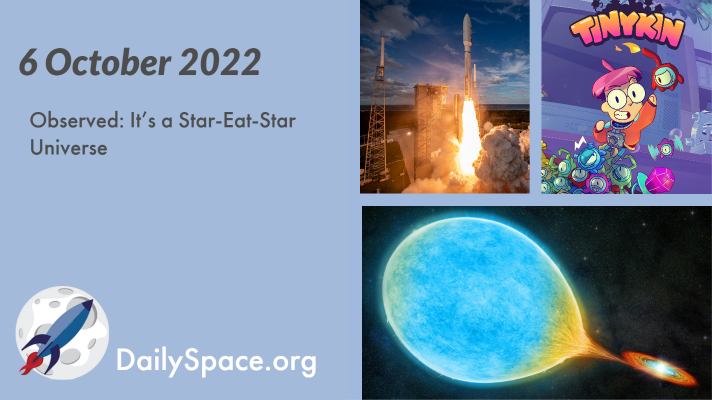
Oct 7, 2022 | Crewed Space, Daily Space, Europa, Galaxies, Review, Rockets, Spacecraft, SpaceX, Starlink, Stars, White Dwarfs
While astronomers have observed white dwarfs consuming companion stars on numerous occasions, for the first time, they have now observed the consumption of the companion’s helium and not just hydrogen. Plus, galactic alignment, rocket launches including Crew 5, a new Europa image, and a review of the video game “Tinykin”.
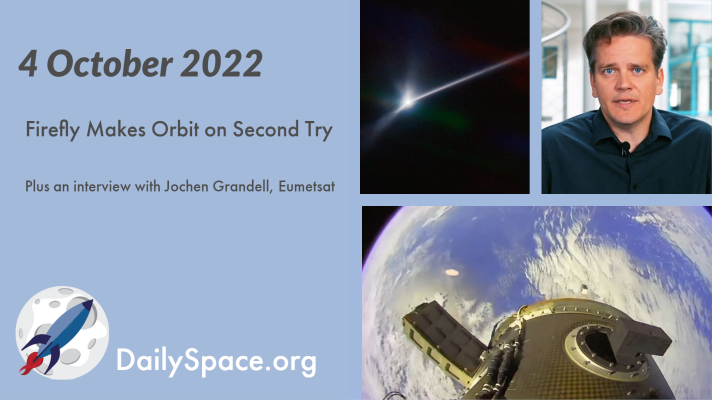
Oct 5, 2022 | Asteroids, Conferences, Daily Space, DART, Earth, Europa, Galaxies, Guest Interview, ISRO, Jupiter, Rockets, Spacecraft
Early Saturday morning, another company entered the exclusive club of successful orbital launchers, Firefly Aerospace, when their second attempt to reach orbit, named To The Black, lifted off on October 1. Plus, a crater in Spain, a new DART image, Juno flies by Europa, and an interview with Jochen Grandell regarding the Meteosat program.
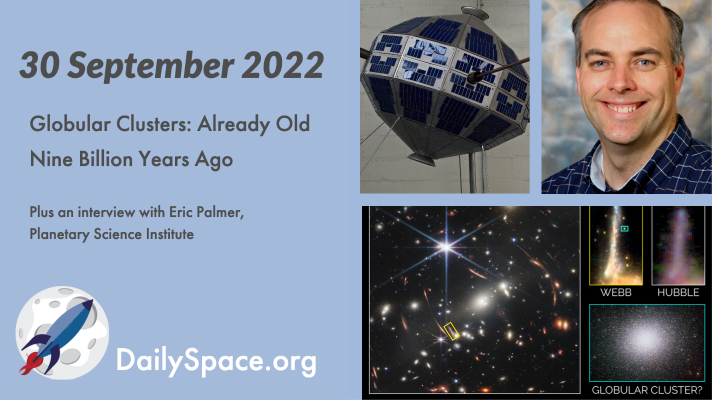
Oct 1, 2022 | Asteroids, Daily Space, DART, Exoplanets, Galaxies, Globular Cluster, Guest Interview, JWST, Space History, Spacecraft
The quest to understand the formation mechanisms of globular clusters was limited by the Hubble Space Telescope’s ability to peer back in time. Now, JWST’s larger mirror has allowed astronomers to find gravitationally lensed galaxies that have globular clusters almost nine billion years old. Plus, two new super-mercury exoplanets, This Week in Space History, and an interview with Eric Palmer about the DART mission.
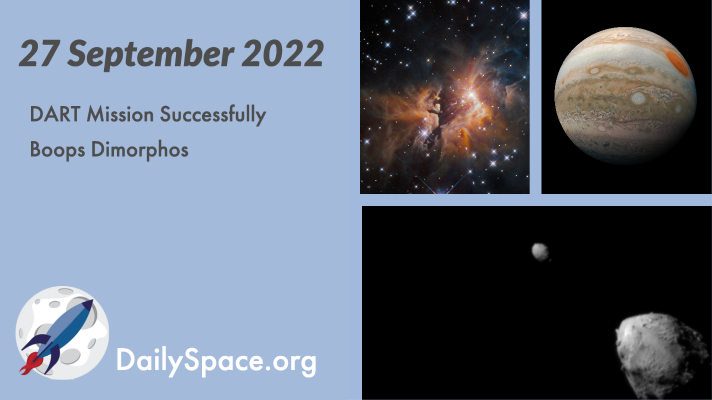
Sep 29, 2022 | Artemis, Asteroids, Cosmology, Daily Space, DART, ESA, Galaxies, Jupiter, Mercury, Moon, Rockets, Science, Spacecraft, SpaceX, Starlink, Stars
After ten months of space travel, NASA’s DART spacecraft arrived at the asteroid Didymos, targeted the moonlet Dimorphos, and successfully flung itself at the surface. Multiple observations confirm that the system brightened and even managed to resolve a cloud of debris. Plus, rocket launches, an update on the SLS, some broken physics, and International Observe the Moon Night.
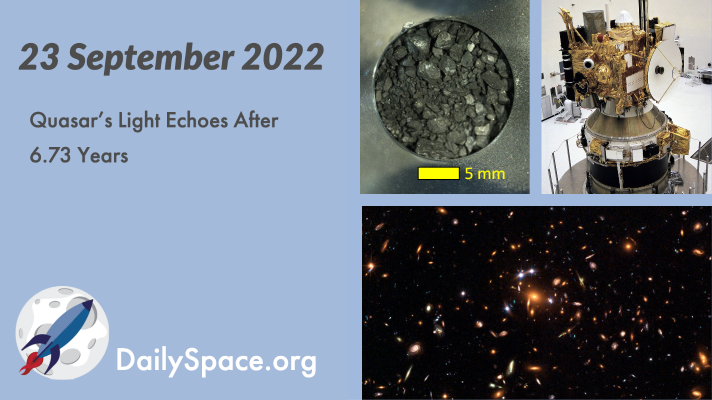
Sep 24, 2022 | Asteroids, Daily Space, DART, Europa, Fast Radio Bursts, JAXA, Jupiter, Mars, Quasar, Random Space Fact, Space History
Astronomers using the 1.2-meter Whipple Observatory to follow the brightness of a lensed galaxy for 14.5 years have calculated that the time delay between light arriving along the shortest and farthest paths is 6.73 years. Plus, DART, Hayabusa2, Juno, fast radio bursts, and This Week in Space History, we look back at NASA’s 1990s attempts to reach Mars.








 We record most shows live, on Twitch. Follow us today to get alerts when we go live.
We record most shows live, on Twitch. Follow us today to get alerts when we go live.